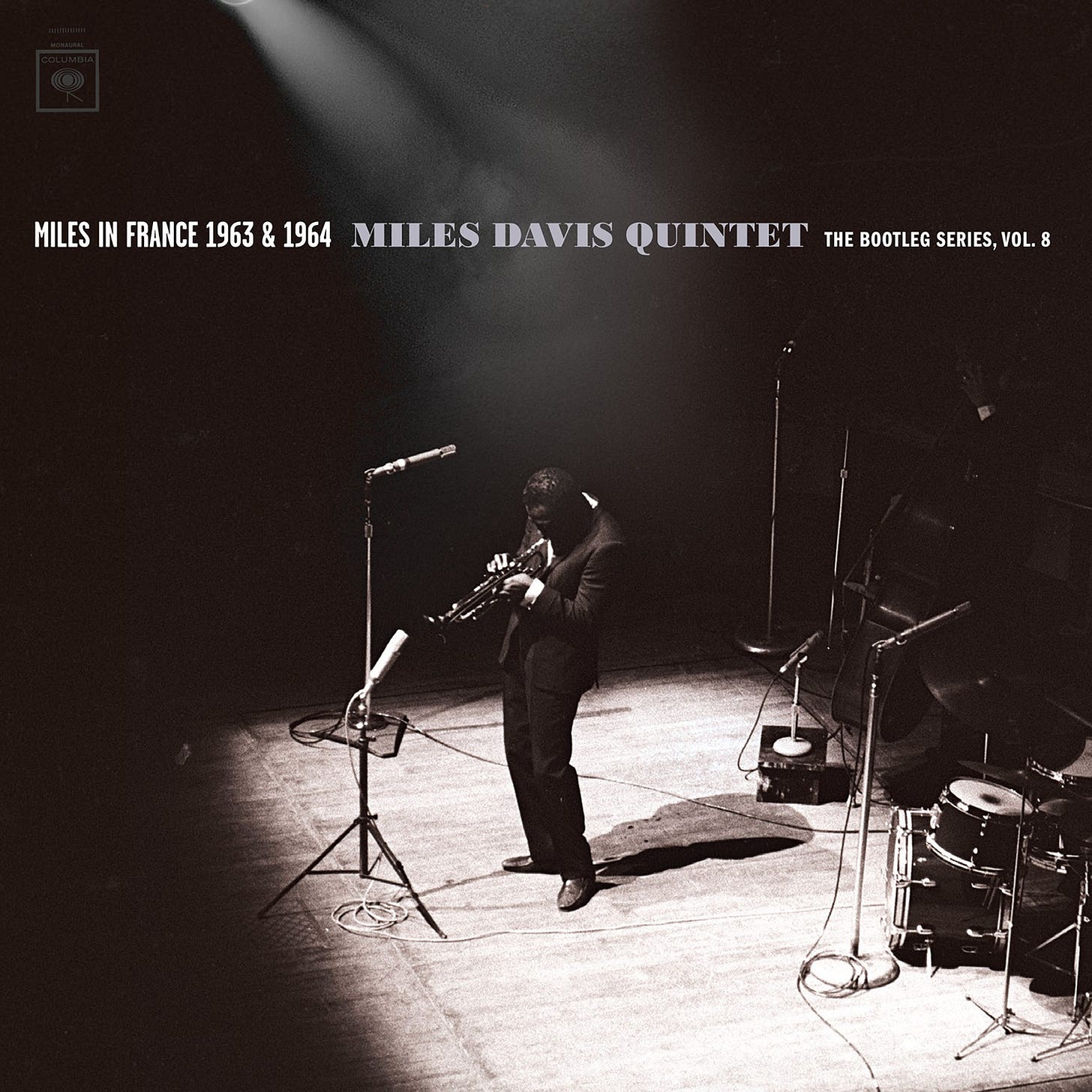On the Stereo: Talking Heads, Tsunami, Miles Davis, Primal Scream, Bob Neuwirth
Talking Heads 77 is expanded, '90s indie-rockers Tsunami get a career-spanning box, the birth of Miles' Second Great Quintet, Bob Neuwirth refurbished, Primal Scream is stranded at a hotel bar.
Talking Heads—Talking Heads: 77 [Super Deluxe] [2024; 1977]
It's appropriate that the debut album from Talking Heads has the year of its release embedded in its title: the record sounds inextricably tied to 1977.
Unlike some other '77 touchstones, like Never Mind the Bollocks Here's the Sex Pistols or The Clash—or even My Aim Is True—Talking Heads: 77 isn't kinetic. There's energy but it's pent-up, kept in check and given a smooth veneer. Where the studio acumen of producer Tony Bongiovi and engineer Ed Stasium gave the Ramones punch on Leave Home and Rocket to Russia, it brightens Talking Heads as it attempts to straighten out their eccentricities. Those quirks are still evident, tempered by clean execution and a sprightly sound, one that's conceivably radio-friendly if the songs weren't such odd, spiky things and if David Byrne didn't sing like a real live wire.
Knowing what Talking Heads accomplished as soon as Brian Eno entered the picture with More Songs About Buildings and Food, Talking Heads: 77 can't help but play a bit like a first draft: the elements are in place but aren't quite assembled. Those elements remain formidable, though: the nervy melodicism, the affectless commentary, and, especially, that phenomenal rhythm section. Chris Frantz and Tina Weymouth have yet to delve into funk but they, more than their New York punk peers, played with a real sense of groove, flair that gives this nascent new wave propulsion. These crazy rhythms keep Talking Heads: 77 feeling fresh even when the production can seem stilted and polite.
The first Talking Heads album to be granted a Super Deluxe Edition, Talking Heads: 77 now is subject to a handsome containing a new remaster of the original album, a disc of outtakes and alternative versions, then a disc capturing Talking Heads onstage at CBGB's on October 10, 1977—the last time they played the famed punk venue. (Additionally, there's a BluRay boasting hi-fidelity mixes). A fair chunk of the second disc has been aired before, either on the compilation Popular Favorites 1976-1992: Sand in the Vaseline or the various 2005 reissues—that's where the "Acoustic Version" of "Psycho Killer" that feels very "electric" but does contain great swathes of cello from Arthur Russell first appeared—leaving only a handful previously unreleased tracks: "Pulled Up" in an "Alternate Pop Version" ("Uh-Oh Love Comes To Town" and "New Feeling" also have alternates with the same designation) and an alternate of "Psycho Killer." These "Pop Versions" feel even shinier than the finished album, thanks to the insistent blare of the horns.
The real treasure on the Super Deluxe Edition is the CBGB's set. Anything that seemed to pop a bit too brightly on Talking Heads: 77 is scuffed up here, driven forward by Frantz and Weymouth and the scratching guitars of Jerry Harrison and David Byrne. In the studio, they seemed confined; on stage, they feel vivid and alive, making a racket that seems quintessentially punk.
Tsunami—Loud Is As [2024; 1991-1997]
Emerging from the teeming DC underground at the dawn of the 1990s, Tsunami harnessed the catharsis of hardcore and cultivated a canny sense of songcraft, forging a territory where punk and DIY-pop converged. Their career spanned the entire length of the Great Alternative Rock Explosion of the '90s yet they ran parallel to the alt-rock mainstream, only occasionally occupying the same space as bands thrown into MTV's Buzz Bin, such as when they appeared on the second stage of Lollapalooza in 1993. That was the same year they released Deep End, a debut album that still seems nervy, alive, and visceral even if it sounds very much of its time. The same can be said for Numero's Loud Is As as a whole. A five-LP box containing Tsunami's three original albums, plus an expanded version of the 1995 compilation World Tour and Other Destinations—all annotated with essays by Jenn Pelly, Evelyn McDonnell, Gina Arnold, and Ann Powers; Joe Gross provides an overarching history in the accompanying book—Loud Is As can seem like the story of 1990s in microcosm. Deep End derives momentum from its unkempt passion, The Heart's Tremolo finds the group marshaling their strengths through increased focus, while their 1997 farewell A Brilliant Mistake finds them in an expansive mood, underscoring their contemplation with flairs of brass and keyboards. The journey from guitar skronk to textured handmade pop mirrors the indie world's evolution in the '90s yet Loud Is As drives home the exhilarating idiosyncrasies of Tsunami. Provocative and introspective in equal measure, as enamored with the rush of sheer sound as melodic hooks, Tsunami reflected their times in ways that still seem thrilling, even if that era is now long gone.
Miles Davis—Miles in France [2024; 1963-1964]
With its eighth volume, the Miles Davis Bootleg Series heads to the mid-1960s, the period when Miles Davis assembled the group that became known as his Second Great Quintet. Featuring five shows from two different festival appearances—three sets from Festival Mondial Du Jazz at Antibes in July 1963, then the two concerts held at the Paris Jazz Festival on October 1, 1964—effectively documents that band being born.





